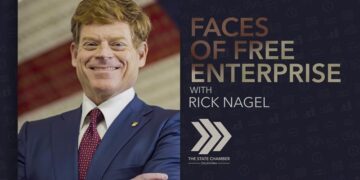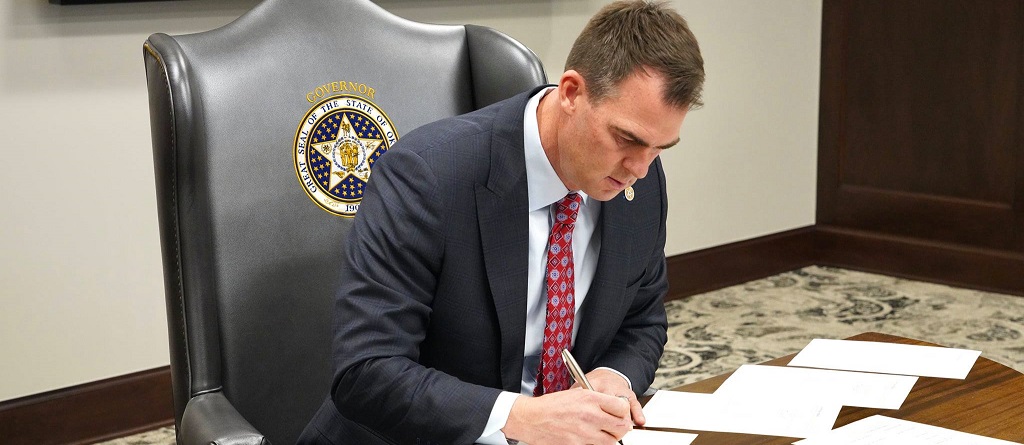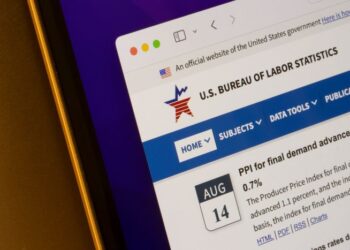OKLAHOMA CITY (OBV) – Gov. Kevin Stitt signed into law the Fiscal Year 2025 budget, which authorizes state expenditures at a reduced level compared to last year in consideration of the grocery tax cut earlier this year.
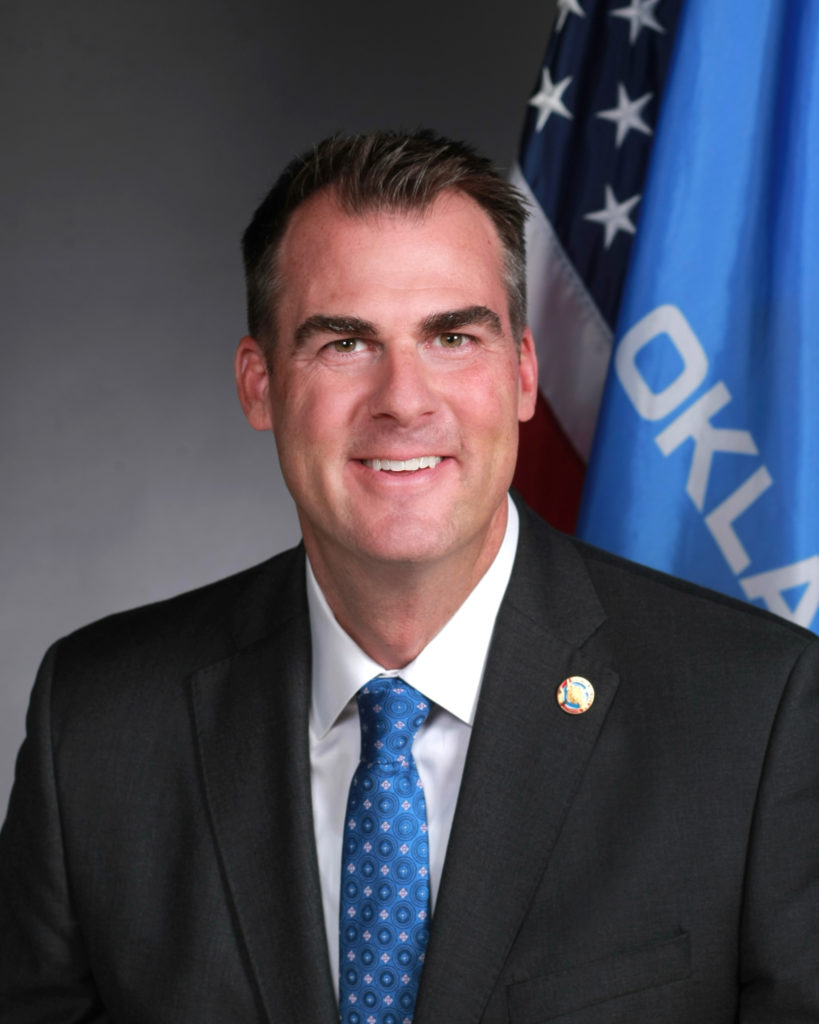
Stitt signed the budget into law on Wednesday. The budget was built during a summit which began on Monday, May 6, with Stitt, Senate President Pro Tempore Greg Treat, House Speaker Charles McCall, Senate Appropriations Chair Chuck Hall and House Appropriations Chair Kevin Wallace all participating. The summit’s multiple sessions were broadcast live online – a first for the process.
“This was the most transparent budget process in state history, and that is something to be proud of,” Stitt said. “Every Oklahoman had the opportunity to have a front row seat to the negotiations that took place and to see how their tax dollars were spent. The state has taken a step forward today, but our work is unfinished. I will continue to fight for more tax cuts and keeping a lid on the growth in government in Oklahoma.”

Stitt’s office touted the budget as delivering on strategic investments in infrastructure and efforts to further the governor’s pro-business, pro-family policies.
The new budget authorizes $12.47 billion in state spending for FY 2025, less than FY 2024’s $13.18 billion budget.
The budget went to the governor’s desk after the Senate approved Senate Bill 1125 with a 31-11 vote.
Stitt and McCall both hoped a personal income tax cut would be included in the budget, but Treat was steadfastly opposed to such a cut happening this year.
“I am proud the Senate showed true leadership in the budget transparency process and pleased the governor decided to sign it into law, while backing down from a tax cut that would have put the state on an unsustainable financial path for future legislators,” Treat said. “I’m also proud to have co-authored the largest tax cut in state history in eliminating the state portion of the grocery tax. Once it goes into effect, it will represent more money in the pockets of all 4 million Oklahomans.”
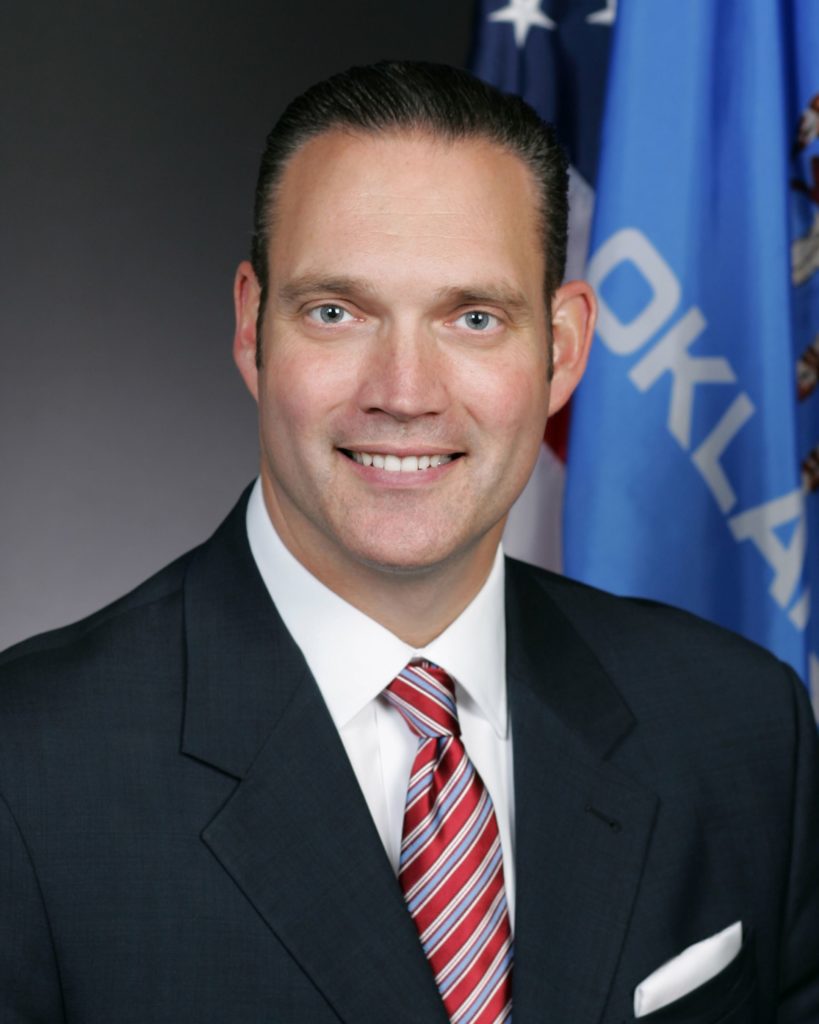
McCall issued a statement saying he is proud the Oklahoma House of Representatives supported a personal income tax cut.
“We appreciate Gov. Stitt honoring his commitment to sign and support a strong budget made possible due to the economic environment created by Conservative leadership in the House,” McCall said. “Overall, spending is down 5.3% compared to last year, while only exercising 89% of overall budget authority. The House is proud to have championed, for a third straight year, a personal income tax cut and a path to zero as future revenues rise, in addition to the repeal of the states grocery tax. We appreciate Gov. Stitt’s support of these efforts as well, and hope to see them prioritized in the future.”
Hall recently praised the new budget, saying it supports many important expenditures.
“I’m immensely proud of this budget that was crafted through a uniquely transparent process that included countless public meetings to discuss, debate and reach a compromise on each and every funding item,” Hall said. “This conservative budget includes key investments to improve our public schools, aid law enforcement, enhance health care, upgrade critical infrastructure and tackle decades of deferred maintenance. I appreciate Senate Pro Tem Greg Treat for trusting me to finalize this spending plan, and I want to thank all of my colleagues who participated in this process to make this our best budget yet.”
Some key appropriations from the FY 2025 budget are as follows:
- $3,861,909,518 for the State Department of Education, less than the $3,970,009,518 it received for FY 2024;
- $38,951,365 for the Department of Commerce, more than the $36,377,973 it received for FY 2024;
- $35,174,417 for the Oklahoma Tax Commission, less than the $37,174,417 the commission received received for FY 2024;
- $72 million for the Department of Aerospace and Aeronautics, significantly more than the $11 million it received for FY 2024; and
- $836,343,711 million for the Department of Transportation, which received $801,401,568 million for FY 2024.
A full breakdown of the budget, including appropriations to all departments, was shared by the Oklahoma House of Representatives.
Stitt has long pushed for cutting the state’s personal income tax.
Treat previously said that he would not support a cut to the personal income tax since a grocery tax cut was already passed and signed into law this year.
Stitt’s goal is to cut Oklahoma’s income tax down to zero.
“Path to zero means when we have excess revenue, next year when we come into this room in this building, and say there’s a billion-dollar surplus again, it’s automatic that we should give Oklahomans a tax cut. We can modestly grow government, but I think that is a path to zero that we should consider,” Stitt said during the summit. “Oklahomans are hurting, and if you have not got a 25 percent pay increase since 2020, you’ve probably got a reduction in your salary because of inflation and what things are costing.”
Oklahoma’s individual income tax system has six income tax brackets ranging from 0.5 percent to 4.75 percent for top earners. The 4.75 percent rate kicks in at a $7,000 annual income.
All Oklahomans and more than 95 percent of businesses in the state pay the individual income tax. The income tax’s standard deduction is $6,350 for single filers and $12,200 for joint filers.
McCall filed several tax cut bills for this legislative session. Those bills are as follows:
- HB 2948 – Corporate income tax phase out over five years.
- HB 2949 – Flat rate 4.25% personal income tax effective Jan. 1, 2024; rate imposed on taxable income amounts above specific figures based on filing status.
- HB 2950 – .25% personal income tax decrease effective Jan. 1, 2024, and following tax years.
- HB 2951 – .25% personal income tax decrease for 2024 and 2025, with rates to restore to current level (current rates and brackets) for 2026, and following tax years.
- HB 2952 – .50% personal income tax decrease for 2024 and 2025, with rates to restore to current level (current rates and brackets) for 2026, and following tax years.
McCall spoke with OBV earlier this year and emphasized the need for an income tax cut. He said it boils down to making Oklahoma more competitive and growing its workforce.
“I think long term, we have to put Oklahoma on a path to get to zero,” McCall said. “Human resources are mobile. Capitol is mobile. When we talk about workforce, every state’s having workforce challenges,” McCall said. “We want to import talent into the state of Oklahoma while we’re grooming and building it ourselves through our youth and through education. When human resources and capitol are looking to go somewhere, they are going to the states where there is no taxation on there productivity. That’s why we got to get to the zero percent personal income tax in the state of Oklahoma.”
The Oklahoma legislature has passed other tax reform measures during the past two legislative sessions, including eliminating the franchise tax, allowing full expensing of capital investments for businesses and eliminating the marriage penalty within the state’s individual income tax law.





